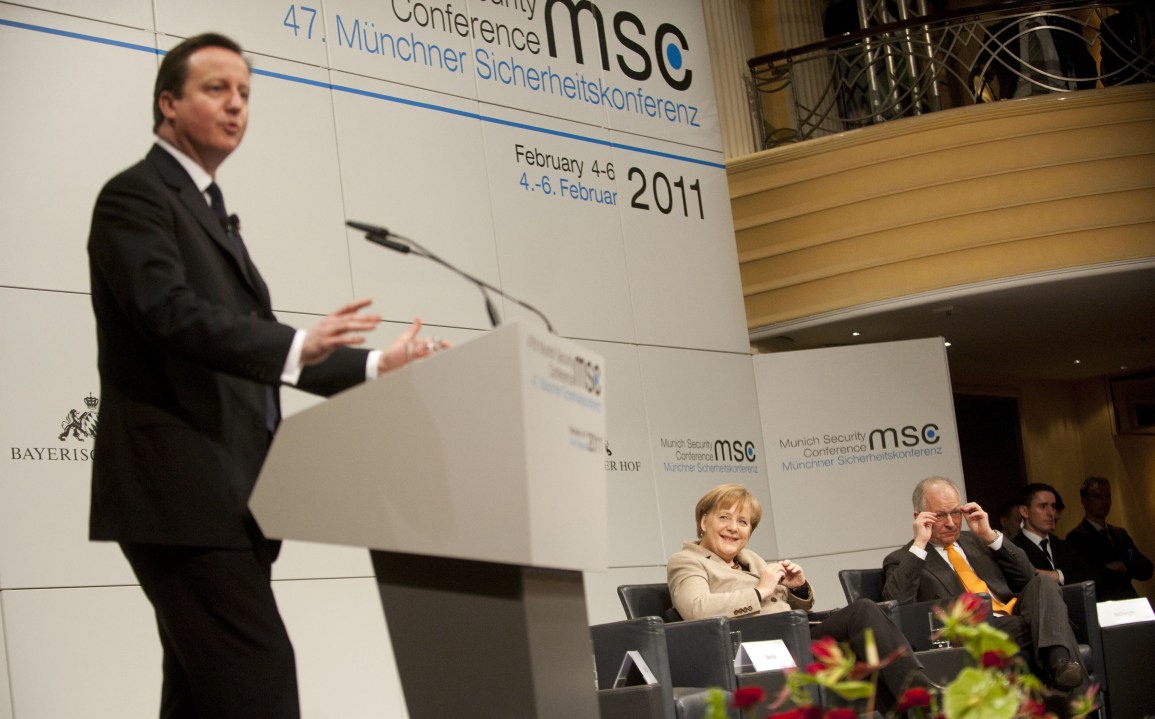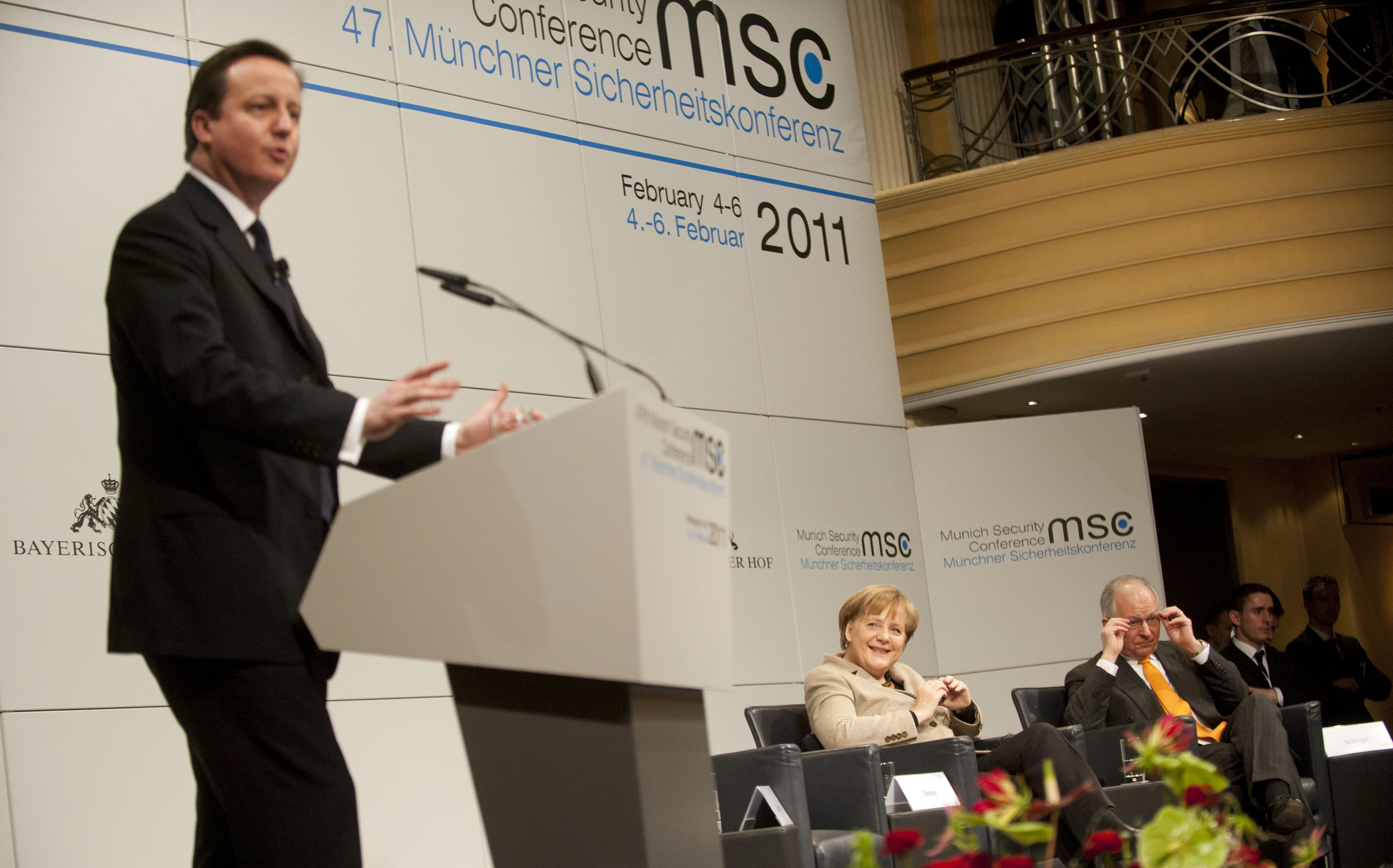 The all-too-predictable reaction to David Cameron’s speech on the importance of tackling the ideology of radical Islam has been
depressing. Much of what he said in Munich should be entirely uncontroversial. For too long, Whitehall has been prepared to deal with the self-appointed gatekeepers of the Muslim community without
asking serious questions about their political heritage or commitment to democratic values.
The all-too-predictable reaction to David Cameron’s speech on the importance of tackling the ideology of radical Islam has been
depressing. Much of what he said in Munich should be entirely uncontroversial. For too long, Whitehall has been prepared to deal with the self-appointed gatekeepers of the Muslim community without
asking serious questions about their political heritage or commitment to democratic values.
The following passage in the speech marks a crucially important shift in British policy in this area:
It is just a pity he did not name the organisations that need to face this new kind of scrutiny. I can help him here: Islamic Forum Europe, the Muslim Public Affairs Committee, the Muslim Association of Britain and i-Engage all need to be asked hard questions. So does the most embedded institution, the Muslim Council of Britain. These groups should not be allowed the privilege of representing this country’s diverse and vibrant Muslim communities just by default.“Let’s properly judge these organisations: Do they believe in universal human rights – including for women and people of other faiths? Do they believe in equality of all before the law? Do they believe in democracy and the right of people to elect their own government? Do they encourage integration or separatism?”
It is now over four years since I wrote When Progressives Treat with Reactionaries for the centre-right think tank Policy Exchange. I concluded by saying that there was no more serious issue for policymakers, but until the government started looking beyond groups inspired by political Islam as partners, the sectarian narrative would continue to dominate the discussion.
It would be churlish of me to criticise David Cameron for making precisely the same points. I do, however, think it is fair to criticise his timing. It is unfortunate that his speech coincided with a massive English Defence League march in Luton. It leaves him vulnerable to the charge that he is pandering to the anti-Muslim prejudice fanned by the EDL.
I also wish he hadn’t used the speech to attack multiculturalism. For me, this is a separate if connected issue, which demands its own critique. It is perfectly possible to celebrate the distinct identities of different religious and ethnic communities while expressing concern about the specific problems raised by the totalitarian ideology of radical Islam.
David Cameron has called for a muscular liberalism and I am delighted that new institutions have emerged to take the debate to the Islamists. Those on the left who feel the need to dismiss Cameron’s speech should first read the response of the anti-extremist Quilliam Foundation. Suzanne Moore’s latest column also provides an intelligent alternative perspective from the left.
Surely there is a more thoughtful way of approaching this highly complex and emotive subject than dismissing David Cameron as anextremist.







Comments